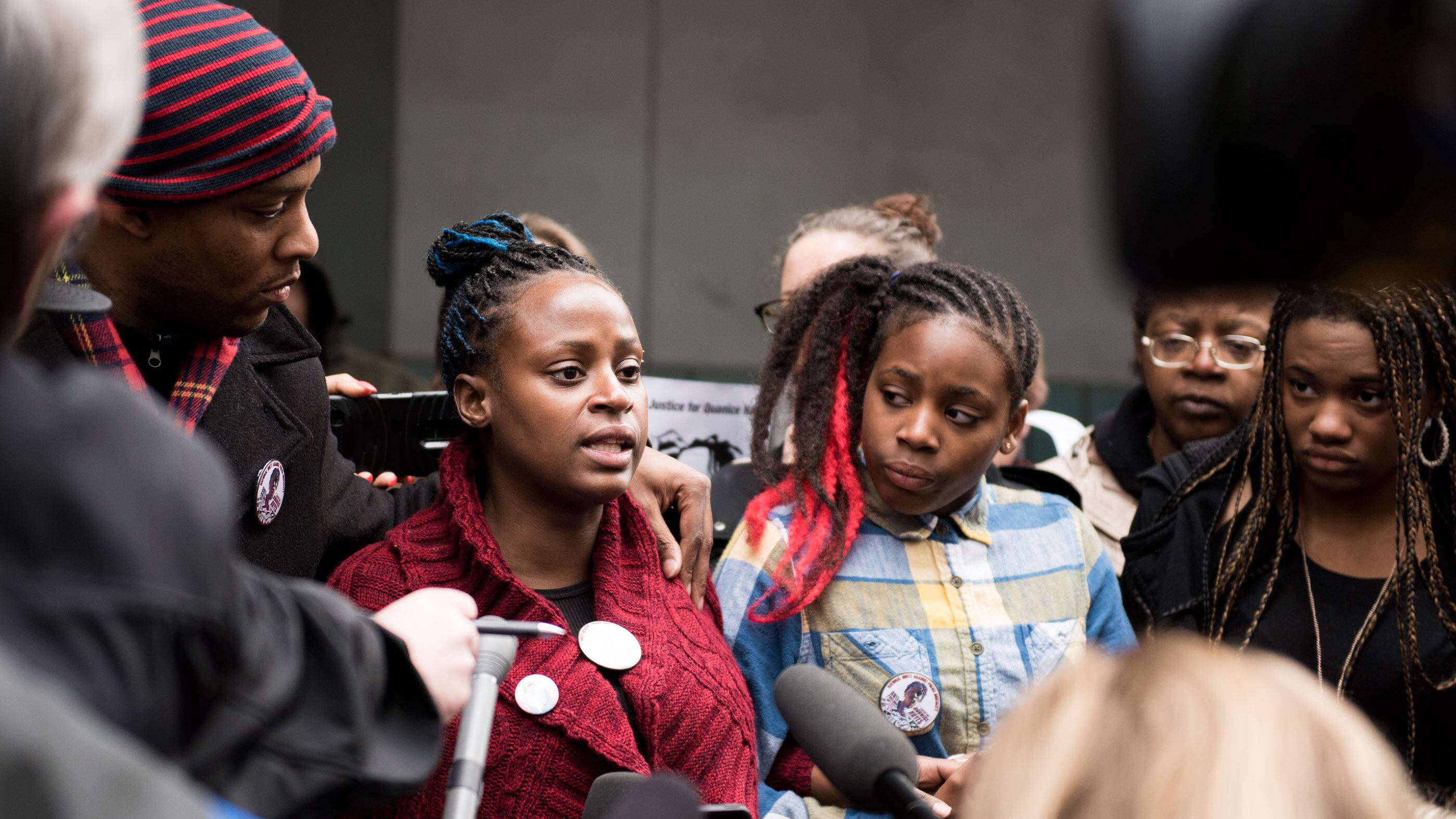The family of Quanice Hayes, a black teenager fatally shot by a Portland police officer last year, formally told the city today that it intends to sue over his death.
The family filed notice that it will sue the city and the Portland Police Bureau officers involved in Hayes' death.
Officer Andrew Hearst shot Hayes in the head with an AR-15 rifle last February outside an East Portland home. Hayes was kneeling and unarmed, and police found a toy gun lying near his body.
Last March, A Multnomah County grand jury ruled the shooting was justified. But the lawyer for Hayes' family says that doesn't end the case.
"The Hayes family refuses to allow Quanice's death to go unanswered. Despite the grand jury's decision not to bring criminal charges against Officer Hearst, the family is determined to do what it takes to get justice for Quanice," said Jesse Merrithew, an attorney representing Hayes' estate. "Quanice's death is part of a pattern by the Portland Police Bureau of killing unarmed young black people."
A Portland police spokesman was not immediately available for comment.
In grand-jury transcripts released last year, Hearst said he believed it was his responsibility to fire on Hayes when he saw the teenager reach for his waistband in defiance of police orders.
"So it was absolutely a conscious decision on my part," Hearst testified, "to defend myself, my co-workers and any citizen that might be behind me from the threat of him getting that gun out and shooting us."
Merrithew and several other lawyers say they will file the lawsuit in U.S. District Court in Portland. Today's notice comes almost a year to the day after Hayes' death.
"The lawsuit will allege that Hearst acted unreasonably when he shot Quanice Hayes three times with his AR-15 rifle," the Hayes' family lawyers say in a statement.
On Monday, Longreads published a lengthy examination of the case. It shows a series of bad decisions that led to the shooting. (The 17-year-old was being chased by police after allegedly trying to rob a man in a parking lot.)
It also raises questions about Portland Police Bureau practices, and the unrestricted sale of toy guns. In the days after Hayes died, WW looked at a rash of shootings where the victim was carrying a fake or toy gun.

